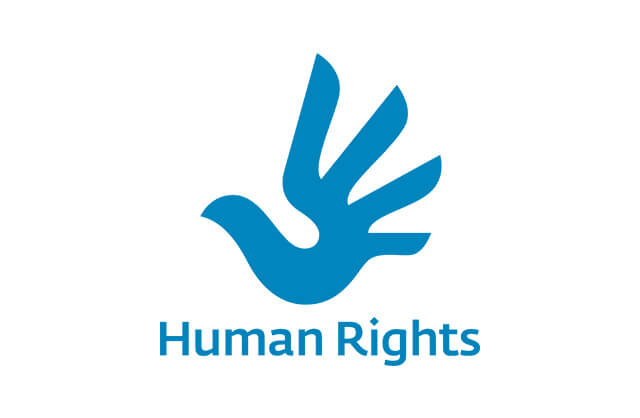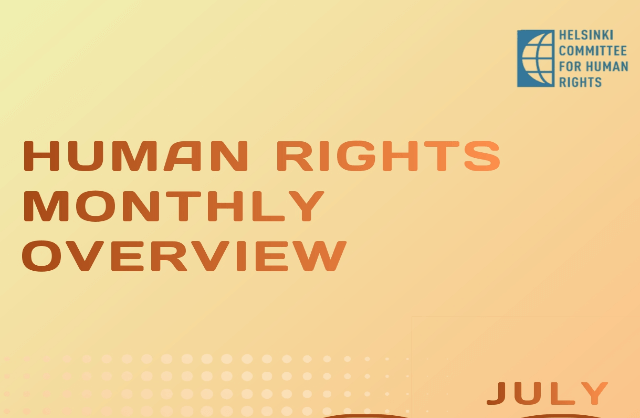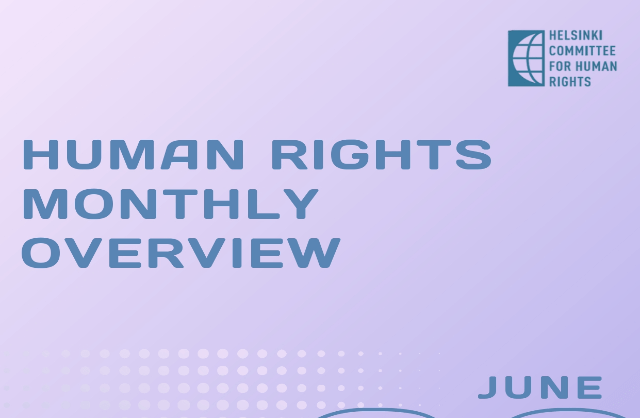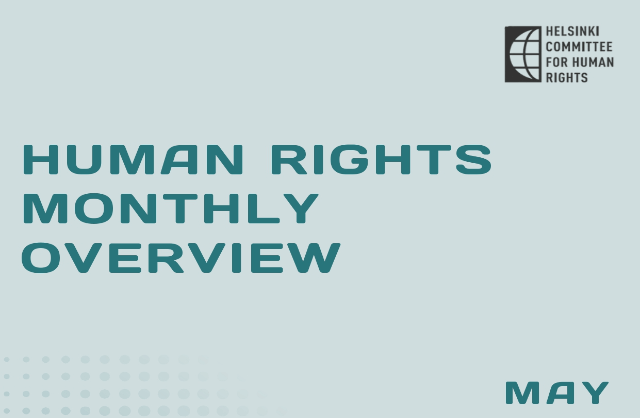Monthly Report (August 2010)
September 10, 2010

1. PUBLIC EVENTS AND VIOLATIONS OF DEMOCRATIC PRINCIPLES
1.1. Defective Lustration
1.2. Castrated Anti-Corruption Commission
2. POLICE AND COURT CASES
2.1. Is the parental allowance allocated in accordance to the law or is it subject to subjective interpretation – the case of Sali Anita, Veles
2.2. Detention – punishment or revenge?
2.3. When the mayor does not like the school director
—————————————————————————————
1. PUBLIC EVENTS AND VIOLATIONS OF DEMOCRATIC PRINCIPLES
1.1. Defective Lustration
The developments that followed after the implementation of the Law on Lustration cannot be played down to “children’s disease”. The ongoing defective lustration results from the defective law, which in turn came from the defective political will of those who adopted it in order to clean the society from the people who have cooperated with the secret police services.
When the law was in the process of adoption the Helsinki Committee published an analysis saying that it violated the human rights. In the address to the media our members critically addressed the numerous weaknesses of the law, claiming that nothing will come out of this lustration because the process should be de facto carried out by those that have to be lustrated.
The problems emerging during the process of its adoption (tactical breaks in the procedure, threats to those proposing amendments) and its realization (establishment of the Commission that should perform the lustration and creation of conditions for unobstructed work) sadly but true, justified our skepticism.
However, the latest developments since the start of the practical work of the Commission for verification of facts of the Republic of Macedonia for non-collaboration with the state security services, also known as Lustration Commission, have raised many issues – To what extent is the Commission independent? Is there any political influence on its work since its members “were delegated” by the political parties? Can the political parties influence the Commission’s decisions, by being mild to some and strict to others? Does the Commission have access to all relevant facts – whether they are reliable or they were changed over time – making it possible to perform its task based on facts and not through discussions, interpretations, voting? What kind of influence, let’s not say manipulation, is possible by those having in their hands the files of the informants? What is the role of the ruling political parties in relation to the Commission’s members, but also the influence of those (not)providing all documents to the Commission?
In the specific case regarding the current president of the Constitutional Court can you be 100 percent sure that the Lustration Commission has based its decision purely on the available facts?! And when this case comes in the package with the claim that the Commission with its voting has protected from lustration two existing MPs, one should not be supporter of the theory of conspiracy to come to an idea that this is revenge to the Constitutional Court after all attacks to the court and its decisions. In addition, the attack on the Constitutional Court (labeled as a tool of the opposition and the famous B.C.) continues, having in mind that its head is the first victim of lustration (although the legal procedure is not completed and the outcome is still unknown). The most tragic would be if all this noise is used as an argument for changing the constitutional setup of the court. Finally, having in mind what is going on in the political arena, is it crazy to ask whether it is possible to abuse the Lustration Law for discrediting the political rivals?
The Helsinki Committee still believes that lustration, if it is well thought out and regulated may be healthy for transformation of the closed into open societies. And to clear any doubts about any possible hidden intentions (or “arguments” about whom we serve) the Committee’s Board has recently made decision to ask the Lustration Commission to check all members of the Committee. The approval to be checked by the Commission was also given by all newly elected members of the Committee. From now on, the application for membership will also include such consent.
We will end in the same way we have started: defective lustration follows after defective law in an ambience of defective democracy.
1.2. Castrated Anti-Corruption Commission
Now is the second mandate of the State Commission for Prevention of Corruption and it is still not clear for how long it will continue its work (February 2011 or a year later), because the amendments to the Law on Prevention of Corruption are in the parliamentary procedure. The amendments foresee shorter mandate of the existing commission, reduced from five to four years. Precisely these forthcoming changes together with the reduced budget for 2010 were used to make statements (even by the Commission’s members) and comments in the media labeling these amendments as “intrusion in the work”, “partization and devaluation”, “attack on the independence” and danger of turning the Commission into “decoration of the system”, etc.
The fact that this is the same composition of the Commission, which for three years in a row has (re)elected the previous president, which according to many people managed to destroy even the few things that the Commission has previously done without any controversies, raised the doubts about the aforementioned assessments. The first composition of the Commission succeeded to build an image of uncompromising fighter against corruption. However, it was demonstrated that this was due more to the PR campaign than to the accomplishments in the fight against corruption, and resulted into the effect that “not all is good when it ends good”: the most prominent anti-corruptioners were recruited as members of the new government in 2006 followed by the interpretation that this was a compensation for their work done in the affair about the apartments of the then opposition leader.
In any case, the Anti-Corruption Commission and the Law that has instituted this Commission offer sufficient arguments to be labeled as “catch 22” laws and state activities. This is a practice that is mastered by all former transition governments in Macedonia. According to this practice, following the recommendations, pressures, carrots and sticks… from the outside, the institution is established in the suggested form. However, the act on establishing this form and defining its actions includes details on incorporating such elements, which fully devaluate this form. This was the case with the first Ombudsman – who was unknown to the public even after two mandates, then the initial decisions on the Broadcasting Council, which instead of being an independent it was only an advisory body of the government and the line ministry. . .
The amendments to the Law on Prevention of Corruption (adopted in 2002 and amended twice already in 2004 and 2006) apart from shortening the mandate of the members, also include professionalization of the composition. The amendments do not offer any improvements of the status or the performances of the Commission and it won’t be surprising if it is demonstrated that the third composition of the Commission will be again reward provided for the party soldiers. If this happens, the corruption would literally enter the State Commission for Prevention of Corruption.
However, the Commission is still far from what is stipulated in Article 1 of the Law on Prevention of Corruption: “The State Commission is established as an autonomous and independent in the performance of its jobs defined by this Law to regulate the measures and activities for preventing corruption in the exercise of power and in the carrying out of entrusted public mandates and policy, the measures and activities for preventing conflict of interests, the measures and activities for preventing corruption while exercising tasks of public interest to the legal entities related to the realization of public authorizations as well as the measures and activities for preventing corruption in the trade companies”.
2. POLICE AND COURT CASES
2.1. Is the parental allowance allocated in accordance to the law or is it subject to subjective interpretation – the case of Sali Anita, Veles
The Helsinki Committee for Human Rights of the Republic of Macedonia received a letter from Ms. Sali Anita from Veles, who informed us that her request for receiving parental allowance for the fourth born child had been rejected by the Center for Social Work in Veles on April 26, 2010.
The decision reads: “The request for exercising the right to parental allowance is rejected as ungrounded because Sali Anita in April 2010 has given birth to two live born children (twins) as her fourth and fifth child, which means that with the birth of the fifth child she is not entitled to the parental allowance because the legal regulations say that the right to parental allowance may be exercised only with the birth of the fourth live born child”.
Although this law is widely publicized by the Government, we would like to remind that based on Article 30-a parental allowance is provided to the mother for her second, third and fourth live born child. Entitled to this right stipulated in paragraph 1 of this article is a mother, citizen of the Republic of Macedonia with permanent residence in the Republic of Macedonia, who directly takes care of the child for which she has submitted request for parental allowance, whose previous children are not sheltered in social institutions, foster families or given to adoption and who still has parenting right over her previously born children.
Not a single article of this Law or the Rulebook stipulates any condition for denying the request with the birth of two or several children together. The mere fact that she gave birth to twins does not affect the right to parental allowance for the fourth child, i.e. for one of the twins.
The Helsinki Committee immediately addressed the Center for Social Work in Veles and the Ministry of Labor and Social Policy requesting answer why the fourth child was not taken into consideration in the procedure, when the decision refers only to the fifth child, although the mother did not request parental allowance for the fifth child, but only for the fourth child.
The Law on amendments and supplements to the Law on Child Protection stipulates: “One shall be entitled to parental allowance for a child after submitting request for exercising the right to parental allowance for child (second, third and fourth) submitted no later than three months after the birth of the child in the period of nine months since this law has been enforced”.
The Center for Social Work in Veles replied in June that they have consulted the competent persons in the Ministry of Labor and Social Policy for the decision and because of the complaint of the client, the case has been forwarded to the Ministry for further processing.
Unfortunately, even four months after the complaint, the Ministry has still not replied, although the competent persons are familiar that this family lives in very bad living conditions.
The Helsinki Committee expects urgent measures to be undertaken in order to resolve the complaint, by observing the legal provisions and approving the request for parental allowance for the fourth child.
2.2. Detention – punishment or revenge?
In several occasions the Helsinki Committee for Human Rights of the Republic of Macedonia has notified the public on the abuse of detention as measure, which is frequently used without legal grounds.
The person Mitko Dimitriev is suspected of committing a crime “Abuse of official position and authorizations” pursuant to Article 353 of the Criminal Code.
An investigation judge ordered detention on November 20, 2009 for 30 days, under circumstances indicating the danger of escape, grounded suspicion that a person who has committed a criminal act may go into hiding or may not be available to the prosecution if the person is released to defend oneself while on bail.
The explanation of this decision reads “during the investigation procedure there is a real danger that if the person is released to defend himself while on bail may obstruct investigation by influencing witnesses, accomplices or destroying the evidence of the crime”.
The same reasons were stated as a ground for extending the detention until February 16, when the Criminal Council of the Department for organized crime and corruption under the Basic Court Skopje II made a decision to cancel the detention and to replace it with house arrest of 30 days.
The Criminal Council in its decision still quotes the danger stated in the previous decisions, which is a legal ground for the detention i.e. house arrest. It is also said that during the decision making and revisiting the reasons for extension of the detention measure, the Council believed that the criminal act for which the suspected is burdened is not qualified as a severe crime.
It was also emphasized that milder preventive measure than detention may be applied, so the house arrest which in its nature is a milder preventive measure the same objectives and effects will be achieved as the ones expected with the detention measure.
The client is in detention i.e. house arrest for almost nine months and the decisions for extension of this measure are stereotyped, routine, with the same contents, and not supported with any arguments.
Another contradiction in this case is that the client is obliged to attend the court hearings in the Basic Court Skopje I Skopje, although the permanent residence of the person is in Strumica. On the other hand, the client has valid passport with a Schengen visa.
Now the Helsinki Committee raises the question about how it is possible for the Criminal Council that feared escape and quoted this in all the decisions, not to take into consideration the preventive measures available in accordance with the Criminal Code, such as taking away the passport or banning the right to leave the house.
Obviously the Council did not examine the likelihood for escape of the suspect, because it failed to provide specific indicators for the adopted decision.
It is not clear whether the goal would be achieved with the application of any of the alternative measures.
The Helsinki Committee for Human Rights of the Republic of Macedonia emphasizes that the successful procedure is not conditioned with the pronouncing of detention as measure and highlights the importance and the need to consider the guaranteed right to freedom and safety before making the decision.
2.3. When the mayor does not like the school director
Ms. Liljana Stamkova from Gevgelija, former director of the primary school “Risto Suklev”, v. Negorci notified the Helsinki Committee about her illegal dismissal from the function director of primary school by the mayor of Gevgelija municipality and the appointment of new acting director against the Law on Primary Education.
The mayor of Gevgelija municipality with decision[1] as of January 21, 2010 has dismissed Stamkova from the duty director, referring to an article[2] of the Law on Primary Education “upon his/her fault, damage has been inflicted to the students, their parents or the school”. The decision does not explain the facts[3], does not provide evidence of the damage nor legal instructions to the client.
The second-instance Commission for resolving the labor issues within the Government of the Republic of Macedonia, which processed the complaint of the client, denied the complaint as ungrounded[4]. The explanation reads that the mayor of Gevgelija municipality has observed the procedure for discharging the director i.e. the procedure was in compliance with the legal regulations.
The Helsinki Committee of Human Rights of the Republic of Macedonia addressed the State Education Inspectorate under the Ministry of Education and Science to undertake all necessary activities for application of legal provisions.
The State Education Inspectorate informed us about the inspection performed in the primary school “Risto Suklev”, v. Negorci and the observed irregularities. They have noted that during the school year 2009/2010 until the dismissal of Stamkova, the School Board never discussed nor made a conclusion proposing dismissal.
It has also reported that the procedure on dismissal conducted by the mayor of Gevgelija municipality is not according to the provisions of the Law on Primary Education because there is no written conclusion from the School Board and the client did not make written statement on the allegations for which she is discharged.
On the other hand, the mayor has tasked the School Board with opening a public advertisement for selection of director, but the State Education Inspectorate reported that at the time of inspection (performed in July), the procedure has not been started yet.
The selection of acting director is made on the same day when the decision for dismissal was adopted and this person still performs the duty although it is stipulated that the acting director cannot perform the function more than six months after the appointment.
After the noted abuses of legal provisions, the State Education Inspectorate submitted notification to the Mayor of Gevgelija municipality and the School Board of the primary school “Risto Suklev”.
The Helsinki Committee is pleased that the competent body has undertaken the specific activities in this case, but was amazed by the second reply from the State Education Inspectorate reporting that the notification was withdrawn despite the evident violations of the law. The explanation was that the client, Ms. Stamkova, has taken the necessary steps and addressed all competent bodies.
In this case, one cannot refrain from asking about the role of the second-instance Commission for resolving the labor issues within the Government of Republic of Macedonia which failed to notice any irregularities despite the facts identified by the State Education Inspectorate.
It is also unclear whether the self-willingness and overstepping of authorizations of the mayor of Gevgelija municipality will not be sanctioned by the competent body, in this case the State Education Inspectorate, which by withdrawing its notification has been fully exempted from the responsibility although it is in charge of undertaking appropriate measures for resolving the current muddy situation.
The Helsinki Committee appeals to the Ministry of Education and Science to take the matters in its hands and to ensure consistent application of the provisions of the Law on Primary Education.
——————————————————————————–
[1] Decision of the Mayor of Gevgelija Municipality No.08-218/1 as of 21.01.2010.
[2] Law on Primary Education, Art. 133 paragraph. 2, line 3
[3] Law on General Administration Procedure, Art. 209 paragraph 3 “The written decision contains: introduction, disposition, explanation, legal instructions, name of the body, number and date, signature of official person and seal of the body…”
[4] Decision No.37-40/3 as of 03.03.2010 of the second-instance Commission for resolving the labor issues (which are not under the Civil Servants Agency) within the Government of Republic of Macedonia


